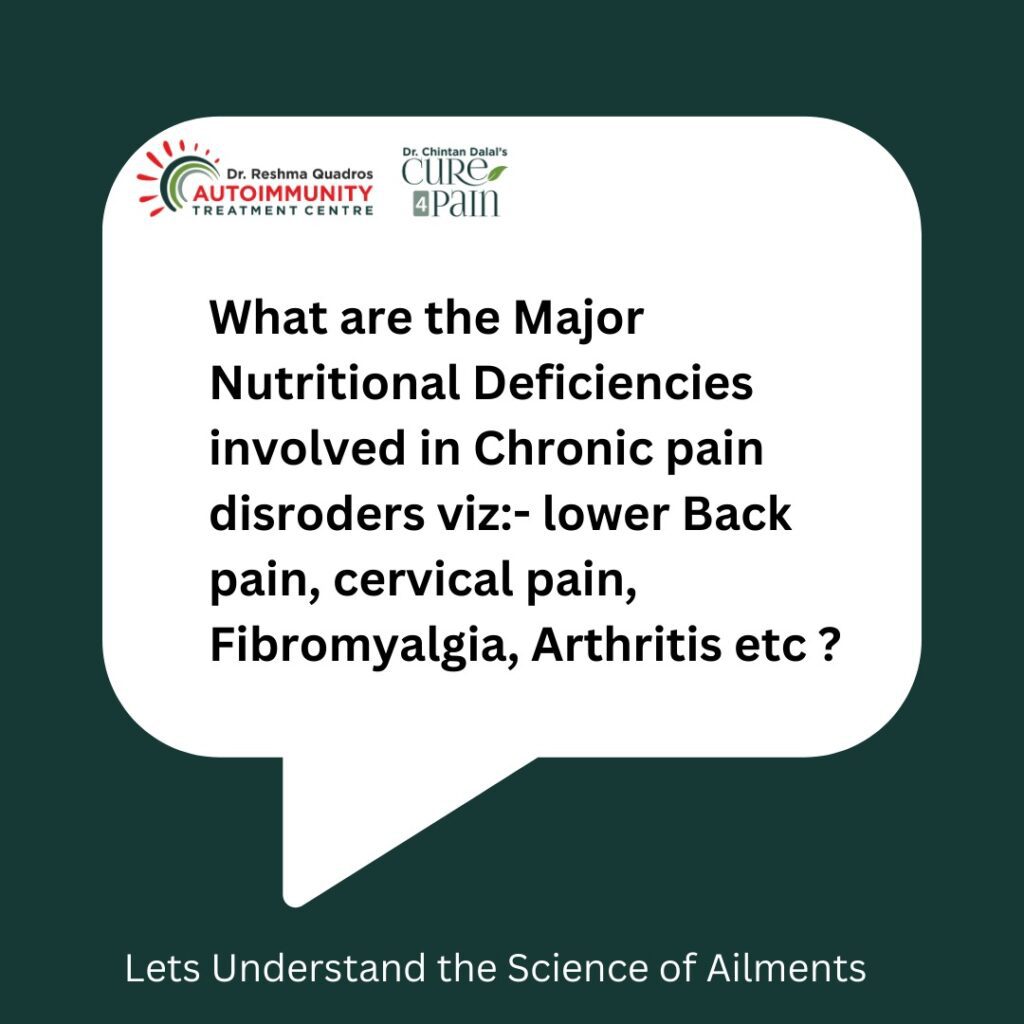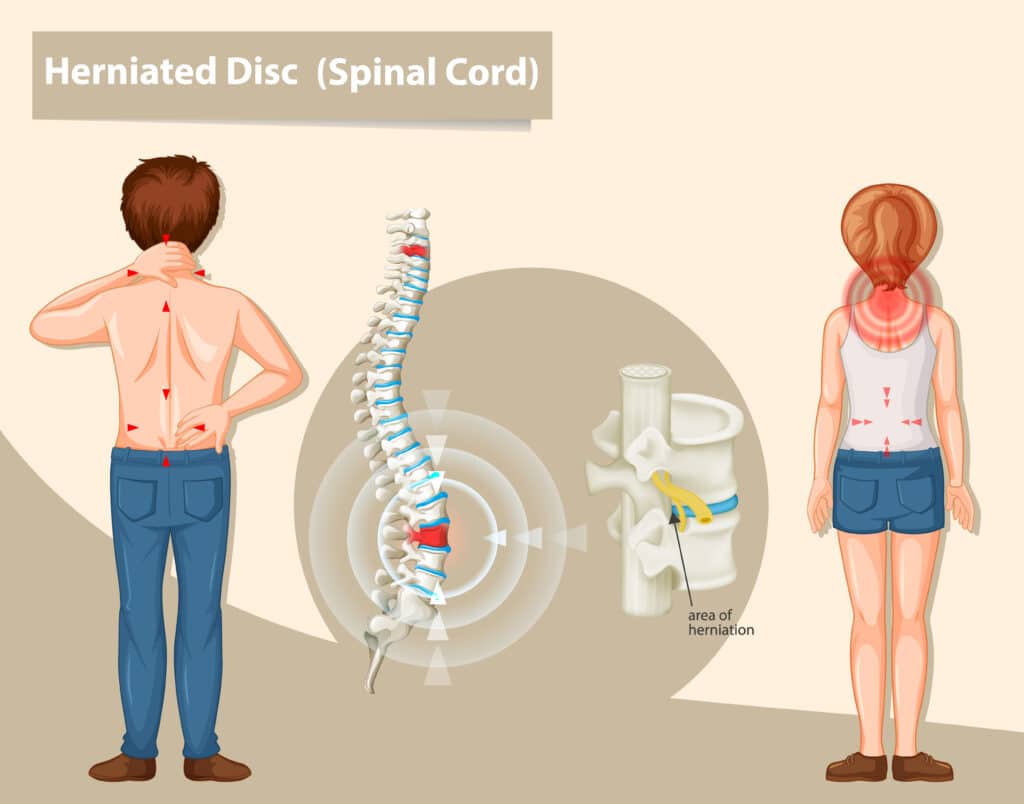Chronic pain disorders, including conditions like fibromyalgia, lower back pain, cervical pain, and joint arthritis, are often accompanied by nutritional deficiencies. Orthomolecular medicine emphasizes the importance of correcting these deficiencies as a means of managing and alleviating pain. This holistic approach not only focuses on reducing symptoms but also aims to restore the body’s optimal nutrient levels to support long-term health and healing.
If you’re searching for a lower back pain specialist near me in Mumbai, orthomolecular medicine could provide the holistic solution you need. Let’s explore some of the major nutritional deficiencies that have been scientifically linked to chronic pain and how addressing them can offer relief.
1. The Role of Vitamin D in Pain Management
Vitamin D plays a pivotal role in managing pain and inflammation, particularly for those suffering from chronic pain disorders. A study published in the Journal of Pain revealed that low vitamin D levels were closely linked to increased pain sensitivity and musculoskeletal discomfort. Given its role in modulating pain signals and inflammation, vitamin D deficiency can exacerbate pain, making it crucial to ensure sufficient levels through diet or supplementation. For individuals with conditions like fibromyalgia and arthritis, boosting vitamin D levels may lead to significant improvements in pain relief and overall well-being.
2. How Magnesium Can Ease Muscle and Nerve Pain
Magnesium is essential for proper muscle function and nerve transmission, both of which are crucial for individuals with chronic pain. Studies, including one from Magnesium Research, have demonstrated that magnesium deficiency is common in those experiencing fibromyalgia, lower back pain, and even cervical pain. Supplementing with magnesium can help alleviate muscle spasms, reduce pain, and promote relaxation. If you’re dealing with persistent back pain and are in need of a lower back pain specialist near me in Mumbai, exploring magnesium’s role in your pain management plan could make a significant difference.
3. Vitamin B12 Deficiency and Its Impact on Neuropathic Pain
Vitamin B12 deficiency is often associated with neuropathic pain, fatigue, and overall discomfort in individuals with chronic pain conditions. A study in The Clinical Journal of Pain showed that patients with chronic pain frequently have low levels of vitamin B12, which can worsen their symptoms. Addressing this deficiency can lead to improved nerve function and reduced pain. Ensuring adequate B12 intake through diet or supplements can aid in nerve repair and energy production, helping individuals manage their pain more effectively.
4. The Anti-Inflammatory Power of Omega-3 Fatty Acids
Omega-3 fatty acids, found in fish oil and certain plant oils, are well-known for their powerful anti-inflammatory properties. These essential fatty acids have shown promising results in reducing inflammation and joint pain, especially in individuals with arthritis. A study in the American Journal of Clinical Nutrition highlighted how omega-3 supplementation led to significant reductions in joint pain and stiffness in arthritis patients. Incorporating more omega-3s into the diet can be a simple and effective way to manage chronic inflammatory conditions and support joint health.
5. Zinc and Its Role in Immune Function and Pain
Zinc is a critical mineral that supports immune function and helps reduce inflammation. Research from Biological Trace Element Research found that individuals with rheumatoid arthritis often have lower zinc levels, contributing to increased inflammation and pain. Supplementing with zinc can enhance immune response, reduce inflammation, and potentially ease chronic pain symptoms, making it an important nutrient for those struggling with autoimmune and inflammatory conditions.
6. The Importance of Coenzyme Q10 (CoQ10) in Reducing Pain and Fatigue
Coenzyme Q10 (CoQ10) is an antioxidant that supports mitochondrial function and reduces oxidative stress, both of which are crucial for pain management in conditions like fibromyalgia. According to a study in Clinical and Experimental Rheumatology, individuals with fibromyalgia tend to have lower levels of CoQ10. Supplementing with this powerful antioxidant can help alleviate pain and fatigue, supporting energy production at the cellular level. By reducing oxidative stress, CoQ10 plays a key role in improving overall muscle and nerve health.
Orthomolecular Medicine: A Holistic Approach to Pain Management
Orthomolecular medicine focuses on restoring the body’s optimal nutrient levels to enhance health and manage chronic pain conditions. By addressing the specific nutritional deficiencies that contribute to pain and inflammation, practitioners can offer personalized supplementation plans to support muscle function, nerve health, and the body’s natural healing processes. If you’re dealing with lower back pain, finding a lower back pain specialist near me in Mumbai who integrates orthomolecular medicine into their treatment approach can offer comprehensive and effective relief.
For more information on holistic pain management, visit Cure4Pain Clinic – Autoimmunity Treatment Centre in Mumbai.


